Speakers
|
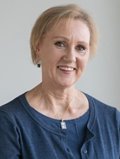
|
|
Andrea J. Phelps, PhD
|
|
Andrea J. Phelps is the Deputy Director of Phoenix Australia, Australia’s national centre of excellence in posttraumatic mental health based at the University of Melbourne. There they combine clinical work, supervision and training with innovative research and consultation to government and industry on trauma related policy and strategy. As the Deputy Director her responsibilities include strategic oversight of the Centre’s activities across research, service development and training; strategic planning and setting future directions; and leadership of flagship projects such as the NHMRC approved Australian Guidelines for the Treatment of PTSD which helped shape the process for the International Society for Traumatic Stress Studies (ISTSS) PTSD Guidelines. She began her career as a clinician, holding senior clinical leadership positions in general mental health and specialised trauma treatment services. This background has shaped her approach to research and consultancy, ensuring that research is clinically relevant and consultancy advice is situated within an understanding of clinical complexity.
|
|

|
|
Angela Nickerson, PhD
|
|
Dr. Angela Nickerson is Professor and Director of the Refugee Trauma and Recovery Program at the University of New South Wales, Sydney Australia. She is a clinical psychologist, and Director of the Master of Psychology (Clinical) Program at UNSW. Her research focuses on understanding psychological and social mechanisms underpinning refugee and asylum-seeker mental health, with the ultimate goal of informing policy and clinical practice.
|
|
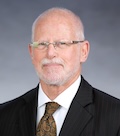
|
|
Arieh Y. Shalev, MD
|
|
Dr. Shalev is Adjunct Professor of Psychiatry at NYU Grossman School of Medicine and Emeritus Professor of Psychiatry at Hadassah and the Hebrew University School of Medicine in Jerusalem, Israel. His research concerns the early detection, prevention, and treatment of traumatic stress disorders, exploring their underlying neurobiology and its translational potential and understanding the interpersonal, social, and humanistic dimensions of trauma survival. A long-time member of International Society for Traumatic Stress Studies (ISTSS), Dr. Shalev previously served on the Board in the 1980's.
|
|

|
|
Bita Ghafoori, PhD
|
|
Dr. Ghafoori is a Professor of Counseling Psychology at California State University Long Beach (CSULB) and Director of the CSULB Long Beach Trauma Recovery Center. Dr. Ghafoori has an active program of research focusing on dissemination of evidence-based trauma treatments for culturally diverse individuals and understanding disparities in mental health care for impoverished trauma-exposed individuals.
|
|

|
|
Barbara Rothbaum, PhD
|
|
Barbara Olasov Rothbaum, PhD is Director of the Emory Healthcare Veterans Program. She is a professor and Associate Vice Chair of Clinical Research at Emory School of Medicine in the Department of Psychiatry and Behavioral Sciences and Director of the Trauma and Anxiety Recovery Program and holds the Paul A. Janssen Chair in Neuropsychopharmcology. She specializes in research on the treatment of anxiety disorders, particularly PTSD. Dr. Rothbaum has been studying PTSD treatments since 1986, served on the DSM-IV PTSD subcommittee, and has developed, tested, and disseminated some of the most innovative and effective treatments available for PTSD. She is an inventor of virtual reality exposure therapy. She was a pioneer in applying it in the treatment of PTSD in combat veterans. Dr. Rothbaum has been conducting translational research on MDMA for almost a decade. She has authored over 400 scientific papers and chapters, has published 11 books on the treatment of PTSD and edited 4 others on anxiety, and received the Diplomate in Behavioral Psychology from the American Board of Professional Psychology. She is a past president of the International Society of Traumatic Stress Studies (ISTSS). She is a fellow of the ACNP, the National Academy of Inventors, the Association for Behavioral and Cognitive Therapies, and American Psychological Association’s Division 56 and was awarded the 2010 “Award for Outstanding Contributions to the Practice of Trauma Psychology” for APA Division 56 and the Robert S. Laufer Award for Outstanding Scientific Achievement from the International Society for Traumatic Stress Studies (ISTSS). Dr. Rothbaum received the 2021 ISTSS the Lifetime Achievement Award and was just made a Fellow in the American Association for the Advancement of Science. Her recent books on PTSD for the general public: PTSD: What Everyone Needs to Know and Making Meaning of Difficult Experiences.
|
|

|
|
Brian J. Hall, PhD
|
|
Brian Hall is the Director of the Center for Global Health Equity, a Professor of Global Public Health at NYU Shanghai and an Associated Professor at the School of Global Public Health, NYU. He joins NYU Shanghai from the University of Macau, where he directed the Global and Community Mental Health Research Group for nearly 7 years. Since 2014, Hall has been an associate faculty member in the Department of Health, Behavior and Society at the Johns Hopkins Bloomberg School of Public Health (JHBSPH). Prof. Hall’s research is broadly focused on the application of interdisciplinary approaches to address diverse population health challenges. He specialized in epidemiological methods and public health during a two-year NIMH T32 Fellowship in Psychiatric Epidemiology in the Department of Mental Health at the JHBSPH. In 2013 he moved full-time to China through a Fogarty Global Health Fellowship (UMJT Consortium), hosted by the University of North Carolina Institute of Global Health and Infectious Disease, JHBSPH, and the Sun Yat-sen University School of Public Health. In 2017 Hall was the inaugural Global Mental Health Fellow of the World Health Organization, and in 2019 he was elected as a Fellow of the American Psychological Association. That same year Hall was the recipient of a Presidential Fellowship for Foreign Talents from the Chinese Academy of Sciences in Beijing. Hall’s dedication to global health mentoring was recognized by a Faculty Excellence in Advising Award, Center for Global Health, at the JHBSPH, also in 2019.
|
|

|
|
Brian N. Smith, PhD
|
|
Dr. Smith is a Research Health Scientist in the National Center for PTSD Women’s Health Sciences Division at VA Boston Healthcare System and Associate Professor of Psychiatry at Boston University Chobanian & Avedisian School of Medicine. His federally funded research program is focused on the effects of traumatic stress and mental health sequelae—PTSD, depression, and salient comorbidities—on outcomes related to physical health, functioning, and quality of life. He examines these outcomes and associated risk and resilience factors in populations at heightened risk for trauma exposure, especially military veterans, and often examines psychosocial risk models in the context of gender differences as well as aging.
|
|

|
|
Briana Woods-Jaeger, PhD
|
|
Dr. Woods-Jaeger earned her bachelor’s degree in psychology from Duke University and her doctorate degree in child clinical psychology from the University of Washington. Prior to her current position at Emory University, she was an Assistant Professor of Pediatrics and Director of Psychological Services and Research for the Children’s Mercy Hospital and Operation Breakthrough Partnership. In this role she spearheaded the development and implementation of a unique clinical care and research program that integrates primary care pediatrics, behavioral health, social services, and early education to address trauma and stress-related health disparities. She is currently a Principal Investigator on research projects supported by the National Institutes of Health and Centers for Disease Control and Prevention focused on primary and secondary violence prevention and promoting resilience after experiencing trauma and adversity.
|
|

|
|
Chérie Armour, PhD
|
|
Professor Chérie Armour from Queens University Belfast studies psychological trauma, mental health, and resilience. Chérie has a MSc in Forensic Psychology and a PhD in Psychological Trauma and Mental Health. Prodessor Armour has published hundreds of academic papers in leading Psychology and Psychiatry journals which have improved our understanding of trauma and trauma outcomes. Chérie's program of researcg focuses on three main populations: military veterans, those who have experienced childhood maltreatment, and those who have experienced intimate partner violence. The research is implemented using a range of methodologies including survey-based methods with advanced statistical modelling, and participant interviews analysed using qualitative methods such as interpretive phenomenological analysis. Chérie has also led randomised control trials assessing psychological therapies. Chérie directs the Stress, Trauma, and Related Conditions (STARC) research centre at QUB, which is supported by an extensive portfolio of external grants and contracted postdoctoral research fellows. Professor Armour is the Past President of the UK Psychological Trauma Society, elected member of the International Society of Trauma Stress Studies, and a current Associate Editor of the European Journal of Psychotraumatology. In addition, professor Armour serves on many journal's editorial boards. Professor Armour has received local, European, and international research excellence awards and is regularly invited to deliver keynote presentations.
|
|
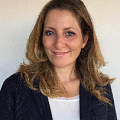
|
|
Claudia Carmassi, MD, PhD
|
|
Claudia Carmassi is Associate Professor of Psychiatry at University of Pisa, Italy, and an expert in PTSD.
|
|

|
|
Coraline Hingray, MD, PhD
|
|
Coraline Hingray is a full professor of psychiatry in France. She works at the University Hospital of Nancy (east of France), treating patients suffering from complex post-traumatic disorders, dissociative disorders, neuropsychiatric functional disorders and psychiatric comorbidities of epilepsy. She is a trained psychotherapist in CBT (Cognitive Behavioral Therapy), DBT (Dialectical Behavioral Therapy), Intergration by ocular movement, Hypnotherapy and Brief Therapies. She is the Chair of the Functional / Dissociative seizures Task Force of the International League Against Epilepsy (since 2021). She is the general secretary of the AFPBN (French Association for Psychiatric Biology and Neuropsychopharmacology) and leader of its Neuropsychiatry section. She leads the EPI-PSY section of the LFCE (Ligue Française Contre l’Épilespie), the French society member of the ILAE. Her research interests focus on the study of psychic and somatoform dissociation: post-traumatic and dissociative disorders, psychiatric disorders in epilepsy, functional dissociative seizures.
|
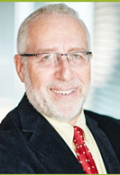
|
|
Dean Ajduković, PhD
|
|
Dean Ajduković is a Professor of Psychology at the Department of Psychology, University of Zagreb, Croatia. His research interests include recovery from trauma, post-conflict community social reconstruction, development and evaluation of psychosocial interventions, prevention of violence in adolescent relationships, treatment of perpetrators of gender based violence. Over the past 18 years, he led the development of Croatia’s first perpetrator program, provided individual and group treatment to perpetrators and victims, helped design the training program for providers who work with perpetrators and delivered trainings across Croatia, Bosnia Herzegovina and Macedonia. He consulted national lawmakers regarding the inclusion of work with perpetrator into Croatian laws, contributed to writing several national strategies to combat GBV with emphasis on work with perpetrators, and authored the national standards for work with perpetrators. He was a member of the interim board of the newly founded WWP EN and helped develop the organization’s statutes and other documents. In 2011, he received the European award Walter de Loos for Excellence in European Trauma Work. He also served as the President of the European Society for Traumatic Stress Studies (ESTSS) in 2003-2005.
|
 |
|
Diane Elmore Borbon, PhD, MPH
|
|
Diane Elmore Borbon, PhD, MPH, is the Executive Director of the International Society for Traumatic Stress Studies (ISTSS) and an Adjunct Professor in the Key Executive Leadership Program at American University in the School of Public Affairs. She is also Project Director for a Duke University School of Medicine contract with the United States Office of Refugee Resettlement to provide trauma-informed training and consultation to their Unaccompanied Children Program. Previously she served as the Policy Director for the UCLA-Duke University National Center for Child Traumatic Stress, the coordinating center for the National Child Traumatic Stress Network; Associate Executive Director of the American Psychological Association’s (APA) Public Interest Government Relations Office; Director of the APA Congressional Fellowship Program; coordinator of APA activities related to military service members, veterans, and their families; and worked on health care issues in the United States Senate. Dr. Elmore Borbon is a Past-President of ISTSS, Chair of the Public Policy Committee for the APA Division 56: Trauma Psychology, a member of the Board of the International Center for the Study, Prevention, and Treatment of Multigenerational Legacies of Trauma, and an Associate Editor for Psychological Trauma: Theory, Research, Practice, and Policy. Her work focuses on effectively translating and disseminating scientific and clinical knowledge to policymakers, government leaders, and key decision makers on public health and trauma policy issues to address the needs of underserved populations.
|
|

|
|
Eva Alisic, PhD
|
|
Professor Eva Alisic is based at the Melbourne School of Population and Global Health, University of Melbourne, Australia. She studies how young people and families deal with traumatic experiences and disadvantage, with the aim of improving support and services. Eva Alisic collaborates extensively with people with lived experience, policymakers and a wide range of health, education and justice practitioners. Eva Alisic has been elected Fellow of the International Science Council and has been involved in global projects on the UN Sustainable Development Goals. She has a keen interest in supporting early-career scholars, and has co-developed the Africa and ASEAN Science Leadership Programs. Eva has a Diploma of Visual Arts. Her art practice addresses both the content and process of her research.
|
|

|
|
Evaldas Kazlauskas, PhD
|
|
Professor Evaldas Kazlauskas is a clinical psychologist and is one of the leading experts of trauma- and stress-related disorders in Europe. Evaldas is the founder and Head of the Center for Psychotraumatology at Vilnius University in Lithuania. For the last two decades, his work has been dedicated to trauma recognition and advocating for the implementation of trauma-informed care. Evaldas Kazlauskas’s interest in the effects of trauma originated while conducting research on the long-term effects of political violence. He received European Society for Traumatic Stress Studies (ESTSS) Young Minds in Psychotraumatology Award in 2007 for his research on the effects of political violence. His current research lines include studies on the assessment and treatment of ICD-11 stress-related disorders, internet-based interventions for stress-related disorders, effects of trauma across the lifespan, and psychological effects of medical conditions, such as cancer or heart disease. Evaldas has a wide network of collaborators, and he is currently collaborating with major trauma research centers across Europe. Evaldas is a past President of the Lithuanian Psychological Association (LPA) (2010-2016). Since 2013 is a founding President of the Lithuanian Society for Traumatic Stress Studies (LSTSS). For almost a decade Evaldas has been a Board member of the ESTSS, and is an active member of the ESTSS COVID-19 Task Force. He is a past President of the ESTSS (2021-2022).
|
|
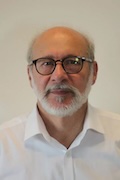
|
|
Francis Eustache, PhD
|
|
Francis Eustache is a Professor of Neuropsychology at the Ecole pratique des Hautes Etudes (EPHE) since 2001. He specialized in human memory, with a multidisciplinary approach combining neuropsychology, cerebral neuroimaging and psychopathology with about 30 published books and more than 400 articles. He directed with Denis Peschanski the transdisciplinary research program "13-Novembre" aimed at studying the construction and evolution of memory after the attacks of 13 November 2015, and in particular the articulation between individual and collective memory. Francis Eustache directed the research unit Inserm-EPHE-University of Caen Normandie U1077 'Neuropsychology and Imaging of the Human Memory' from 2002 to 2022, was the Director the Neuroimaging Center Cyceron from 2012 to 2016 and is still the President of the Conseil Scientifique de l’Observatoire B2V.
|
|

|
|
Jana D. Javakhishvili, PhD
|
|
Dr. Jana D. Javakhishvili is a Professor of Psychology and Director of the Institute of Addiction Studies at Ilia State University, Tbilisi, Georgia. Her research interests focus on exploring mental health problems of war- and political oppression-affected populations. She is heavily engaged in the projects of the Federation Global Initiative on Psychiatry focused at improving human rights-based mental health care in Georgia, Kyrgyzstan, Sri Lanka, Ukraine and other war-affected countries. She is a past President of the European Society for Traumatic Stress Studies (ESTSS). Currently, she is on the editorial board of the European Journal of Psychotraumatology and a Trustee of the Dart Center for Journalism and Trauma Europe.
|
|

|
|
Jinhee Hyun, PhD
|
|
Dr. Hyun is a Professor at Department of Social Welfare in Daegu University in Korea. She was the President of Korean Society for Traumatic Stress Studies (KSTSS) during 2020-2021. She is also a President of Korean Academy of Mental Health Social Work in 2023. She worked as a clinical social worker at US Army Hospital in Korea. Her primary responsibility was to provide psychotherapy for soldiers with PTSD, and victims of sexual assault, family violence, and child abuse. She is the head of the counseling team of Gyeongbuk Fire Service Headquarters. Her research and clinical interests focus on disaster mental health, vicarious trauma, trauma-informed care, and evidence-based practice in trauma fields. She provided resiliency program for mental health professionals and made voice on the mental health policies and systems as a member of advisory committees at central and local governments in Korea.
|
|

|
|
Joanne Mouthaan, PhD
|
|
Dr. Joanne Mouthaan is a Senior Assistant Professor and Educational Coordinator for the Clinical Psychology Department of the Institute of Psychology at the Faculty of Social and Behavioural Sciences of Leiden University, the Netherlands. In her teaching and research she focuses on the prediction, prevention and etiology of PTSD and other trauma-related psychopathology, early risk screening and early (e-health) interventions, with a special focus on injury survivors and uniformed services. Dr. Mouthaan is part of the International Consortium to Predict PTSD (ICPP) and a member of the CONNECT research group that takes part in the pan-European longitudinal study of psychosocial reactions to the COVID-19 pandemic (the ADJUST Consortium). She currently studies (digitally) innovative strategies to teach (online) therapeutic skills in the context of trauma and suicide prevention for which she received governmental and university grants. She received a Jan van Dijk Victimology Award for her PhD thesis and was nominated for the Institute of Psychology’s Best Teacher Award at Leiden University. She was the organizational chair for the 2019 European Society for Traumatic Stress Studies (ESTSS) biennial conference in Rotterdam together with dr. Miriam Lommen. Dr. Mouthaan is part of the editorial board of the European Journal for Psychotraumatology, chair of the Dutch psychotrauma association (NtVP), and since 2023 President of the ESTSS.
|
|

|
|
Judith Bass, PhD MPH
|
|
Dr. Bass is currently a Professor of Global Mental Health and the Vice Chair for Education in the Department of Mental Health at the Johns Hopkins Bloomberg School of Public Health. During her career in public mental health, her research nenters on the experiences of global populations affected by trauma and ways to improve access to effective mental health services in low-resource settings.
|
|

|
|
Marit Sijbrandij, PhD
|
|
Dr. Sijbrandij is Professor in Clinical Psychology and co-Director of the World Health Organization Collaborative Center for Research and Dissemination of Psychological Interventions at the Vrije Universiteit (VU) University Amsterdam, the Netherlands. Her research is focused on the prevention, early detection and treatment of mental health problems following trauma and adversity in a global context and in vulnerable populations.
|
|
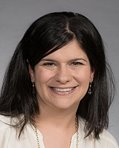
|
|
Michele Bedard-Gilligan, PhD
|
|
Dr. Bedard-Gilligan is an Associate Professor in the Department of Psychiatry and Behavioral Sciences at the University of Washington (UW) and a licensed clinical psychologist in the state of Washington (WA). She is co-director of the Trauma Recovery and Resilience Innovations (TRI) program and is associate director of the UW Center for Anxiety and Traumatic Stress (UWCATS). Dr. Bedard-Gilligan’s research predominantly focuses on recovery process following trauma exposure, with specific emphases on the co-occurrence of posttraumatic stress disorder (PTSD) and substance use. She is currently a lead investigator on several clinical trials developing and testing brief interventions to promote trauma recovery and is involved in ongoing projects designed to train providers in trauma-focused behavioral treatment approaches. She also maintains an active clinical practice.
|
|

|
|
Miranda Olff, PhD
|
|
Professor dr. Miranda Olff is leading the Centre for Psychological Trauma at the department of Psychiatry at the Amsterdam UMC (AMC) of the University of Amsterdam and is Director of Research at the ARQ National Psychotrauma Centre. She has been trained in Corporate Governance and has several committee/advisory board positions (e.g. MH17 disaster foundation). Her research focuses on psychological and biological responses to traumatic stress. Miranda Olff is founding Editor-in-Chief of the European Journal of Psychotraumatology (EJPT), an Open Access journal owned by the European Society for Traumatic Stress Studies (ESTSS), launched when she was President of ESTSS. She also is a past President of the International Society for Traumatic Stress Studies (ISTSS). Miranda Olff is chair of the Global Collaboration on Traumatic Stress, a collaborative of traumatic stress societies who joined forces to tackle traumatic stress topics of global importance.
|
|

|
|
Misari Oe, MD, PhD
|
|
Dr. Misari Oe is a psychiatrist and the head of the Counseling Center at the Kurume University Hospital, Japan. She is also a Senior Lecturer of the Department of Neuropsychiatry, Kurume University School of Medicine. She has a wide range of study fields, including psychotherapy, psychopharmacology, psychoendocrinology, psychophysiology, social psychiatry, epidemiology, and disaster psychiatry. She is also a board member of the Japanese Society for Traumatic Stress Studies (JSTSS).
|
|

|
|
Nicole Nugent, PhD
|
|
Dr. Nugent is an Associate Professor, Research Scholar, in the Departments of Psychiatry and Human Behavior, Pediatrics, and Emergency Medicine at the Alpert Brown Medical School. She serves as Director of Psychological Services at the Hasbro Pediatric Refugee Clinic as well as Associate Director of the Institute for Stress, Trauma, and Resilience (STAR Institute) at the Alpert Brown Medical School. Her federally funded research program explores the interplay of biology and social context during times of stress, trauma, and transition in high risk and trauma-exposed populations, with the goal of translation to intervention.
|
|

|
|
Peggy Quinette, PhD
|
|
Dr. Peggy Quinette is an Associate Professor in Psychology at the University of Caen Normandy. Her research focused initially on memory, identity and self-awareness in amnesia. More recently, she has extended her research to autobiographical memory and identity after exposure to trauma in the context of the "13-Novembre" program using neuropsychological and textometric methods.
|
|
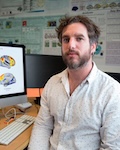
|
|
Pierre Gagnepain, PhD
|
|
Pierre Gagnepain, is a Neuroscience Researcher at the Neuropsychology and Imaging of Human Memory Laboratory (NIMH - Inserm-EPHE-University of Caen Normandie) and scientific leader of the Remember program focusing on neurobiological markers of trauma resilience after the attacks of 13 November 2015. He is using brain imaging techniques in Cyceron's Caen platform to study memory control mechanisms in PTSD volunteers following the terrorist attacks.
|
|

|
|
Rachel Hiller, PhD
|
|
Dr. Rachel Hiller is an Associate Professor in Child Mental Health at University College London (UCL) and the Anna Freud National Centre for Children and Families, in the United Kingdom. Her research is in the field of complex child trauma, with a particular focus on children with experience of out-of-home care (e.g., foster care, residential group care). Her work here spans research into social and cognitive mechanisms driving mental health and wellbeing, through to the testing of scalable mental health interventions delivered in child welfare and mental health settings, and the implementation of current best-evidenced practice. Her work includes a transdiagnostic focus, as well as a more specific focus on PTSD and complex PTSD.
|
|

|
|
Rachel Rodgers, PhD
|
|
Dr. Rodgers’ interests are in the area of body image, disordered eating and adolescent/young adult psychopathology, in particular focusing on sociocultural influences on body image and eating concerns. Her research aims both to examine socio-cultural determinants of health-related behaviors but also to generate research which may inform public policy. She is the author of over 200 journal articles and book chapters.
|
|

|
|
Sonya Norman, PhD
|
|
Dr. Sonya Norman earned her B.A. in Cultural Anthropology from Vassar College and her PhD in Counseling Psychology from Stanford University. She completed her pre-doctoral internship and postdoctoral fellowship at the University of California San Diego and VA San Diego. The focus of her fellowship was on the neurobiology of trauma among female survivors of intimate partner violence. In the course of doing assessments with our study participants and learning from them about their lives, she realized her passion was to study treatments to help people recover from the detrimental effects of trauma. She joined the faculty of the UCSD Department of Psychiatry shortly after. Studying treatment has been her research focus since then. In addition, early her career, she served as a VA psychologist, PTSD clinical team leader, and training director for a postdoctoral fellowship focused on evidence-based treatments at the San Diego VA. In 2012, while continuing her faculty appointment at UCSD, she transitioned from her VA roles to her position as the PTSD Consultation Program Director for the National Center for PTSD, where she lead a team of expert PTSD clinicians, administrators and researchers. In this capacity, she oversee over 2000 consultations per year related to treating veterans with PTSD and lead educational efforts on PTSD assessment and treatment for VA and community providers.
|
|
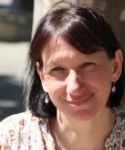
|
|
Stephanie Khalifa, PhD
|
|
Dr Stéphanie Khalfa is a Neuroscience Researcher at the CNRS in Marseille at the CRPN (Psychology and Neuroscience Research Centre), specialising in research into the neuronal mechanisms involved in healing psychological trauma. Dr Khalfa is a psychologist trained in strategic brief therapy, EMDR, IFS, hypnosis and neurofeedback, and co-creator of the MOSAIC therapy.
|
|

|
|
Synne Øien Stensland, MD, PhD
|
|
Dr. Stensland is Senior Researcher and Medical Doctor with a specialty in paediatrics working at the Norwegian Centre for Violence and Traumatic Stress Studies (NKVTS), and the Communication- and research unit for musculoskeletal disorders, Division for neuroscience and musculoskeletal medicine (FORMI), Oslo University Hospital, in Norway. Her research focuses on understanding the impact of traumatic events on the somatic health and well-being of children and adolescents growing into young adults.
|
|

|
|
Ulrich Schnyder, PhD
|
|
Ulrich Schnyder, MD, is a psychiatrist and licensed psychotherapist. He is emeritus Professor of Psychiatry and Psychotherapy at University of Zurich, Switzerland. Until 2018, he was head of the Department of Psychiatry and Psychotherapy at the University Hospital Zurich. His scientific activities are focused on various aspects of traumatic stress research, including epidemiology, neurobiology, psychotherapy and pharmacotherapy for PTSD, resilience to stress, and, more recently, refugee mental health, and the emotional, psychosocial and physical consequences of child maltreatment. He is a past President of the European Society for Traumatic Stress Studies (ESTSS), the International Federation for Psychotherapy (IFP), and the International Society for Traumatic Stress Studies (ISTSS). In 2013, he received the ESTSS Wolter de Loos Award for Distinguished Contribution to Psychotraumatology in Europe, and in 2016 the ISTSS Lifetime Achievement Award. Honorary Member, International Federation for Psychotherapy (IFP). Co-chair of the Global Collaboration on Traumatic Stress (GC-TS).
|
|
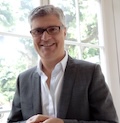
|
|
Wissam El-Hage, PhD
|
|
Wissam El-Hage is Professor of Adult Psychiatry, Director of the Clinical Investigation Centre CIC1415, Co-leader of the Team 1 "Neurofunctional Psychiatry" of the INSERM unit iBrain U1253. He is the Medical Director of the Psychotraumatology Regional Centre - Centre Val de Loire, in relation with the French National Centre of Ressources and Resilience. The main interest is the study of neurocognitive and cerebral correlates of depression and post-traumatic stress disorder at adulthood.
|
|
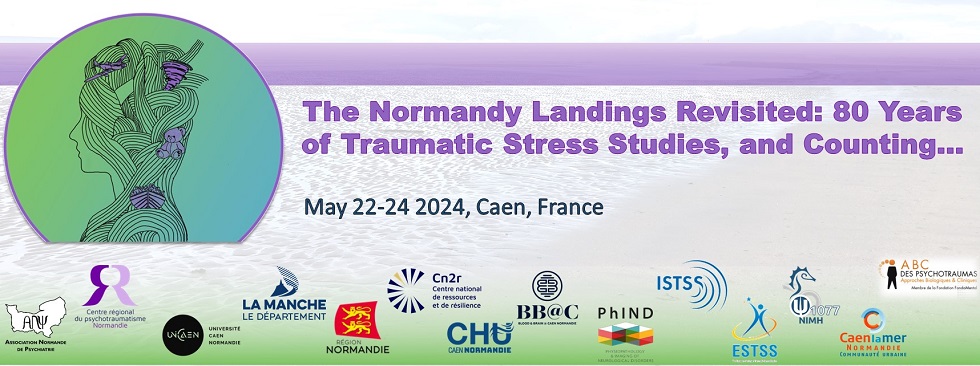

